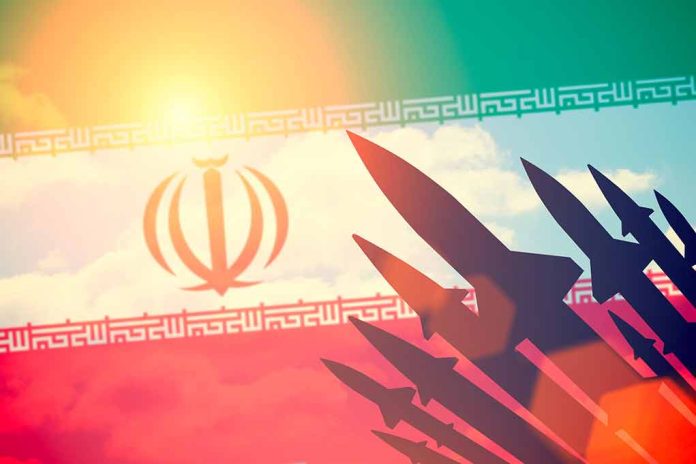
Iran struggles to maintain its military presence across the Middle East, causing potential shifts in regional power dynamics.
At a Glance
- Iran’s military resources are dwindling, affecting its influence in Syria.
- The Israeli conflict with Iran escalates regional tensions and prompts strategic recalibration.
- Israel’s attacks have weakened Iran-backed forces, shifting the strategic balance in the region.
- Domestic discontent in Iran grows due to regional military involvements.
Iran’s Military Strain Evident in Syria
Iran’s focus on confronting Israel has strained its military resources, significantly impacting its support for the Assad regime in Syria. The recent Sunni rebel offensive highlighted this vulnerability, leading to a strategic crisis for Iran. Benny Sabati from the Institute for National Security Studies noted that Iran struggles to sustain multiple operations. The pressure has forced Iran to seek support from Russia, the effectiveness of which remains uncertain.
Iran’s situation worsened with Syria turning against President Assad, marking a change since Russia intervened militarily in 2018. Despite sending reinforcements, Iran’s influence is declining as rebels rapidly capture towns. This scenario is compounded by Israel’s military actions, which have weakened Iran’s standing and shifted the strategic balance.
“I can now confirm that we have concluded the Israeli response to Iran’s attacks against Israel. We conducted targeted and precise strikes on military targets in Iran — thwarting immediate threats to the State of Israel.”
Watch IDF Spokesperson RAdm. Daniel Hagari talk about the… pic.twitter.com/1OOss3etpV
— Israel Defense Forces (@IDF) October 26, 2024
Israel-Iran Conflict Dynamics
The Israeli military is determined to prevent Iran from smuggling weapons through Syria to Hezbollah in Lebanon. Israeli attacks on Iran’s military infrastructure have given Syrian rebels a chance to gain ground. These developments forced Iranian forces to withdraw some of their units, enabling rebels to capture Aleppo and other strategic locations, bolstering their efforts to oust the Assad regime and Iranian militias.
“I am clear that Israel has the right to defend itself against Iranian aggression. I’m equally clear that we need to avoid further regional escalation and urge all sides to show restraint. Iran should not respond,” Britain’s Prime Minister Sir Keir Starmer has said.
Supreme Leader Ayatollah Ali Khamenei faces tough decisions on whether to escalate with ballistic missile attacks or refrain to avoid appearing weak. Meanwhile, the U.S. supports Israel but advises against further escalation, focusing on preventing more regional destabilization.
Domestic and International Reactions
Domestically, Iranians grow weary of their nation’s expenditures on foreign conflicts, directing criticism at alliances with militant groups. The widening conflict has drawn international concern, notably from the UN, which criticizes the humanitarian impact in Gaza. Meanwhile, diplomatic channels suggest lifting sanctions on Assad if he distances from Iranian influence.
“The goal of the operation … is to liberate our occupied territories from the criminal regime and Iranian militias, as well as to establish a safe environment for displaced people to return to their cities and towns,” rebel group spokesperson Hassan Abdulghani has said.
Furthermore, Russia, previously supporting Assad, has shifted focus to Ukraine, weakening Assad’s backing. This geopolitical puzzle might prompt Israel to act should threats to the Golan Heights or chemical weapons arise, complicating the already volatile situation.














